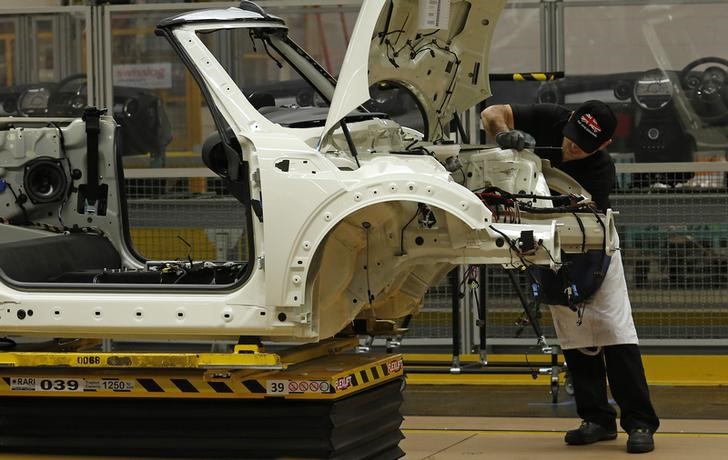LONDON, Oct 1 (Reuters) - British factory activity cooled further in September and manufacturers trimmed staff levels for the first time in more than two years, a survey showed on Thursday, suggesting the sector continued to drag on the economy in the third quarter.
The purchasing managers' survey compiled by Markit supported calls for the Bank of England not to raise interest rates until manufacturing improves, said Rob Dobson, senior economist at Markit.
The Markit/CIPS UK Manufacturing Purchasing Managers' Index (PMI) slipped to 51.5 from 51.6 in August. While above the 50 threshold for growth, September's PMI was only just above a two-year low hit in June.
Economists polled by Reuters had expected a slightly worse reading of 51.3.
British factories have struggled this year. Official data on Wednesday showed manufacturing output shrank 0.5 percent from April through June while the much larger services sector thrived.
Prices paid by manufacturers for raw materials and energy plummeted at the fastest rate in more than 16 years, suggesting producer prices are unlikely to pick up soon.
"The UK manufacturing sector remained sluggish at the end of the third quarter, stunned by a triple combination of a sharp slowdown in consumer spending, weak business investment and stagnating export order inflows," Dobson said.
The survey's jobs index slipped below the 50 mark for the first time since April 2013, adding to signs that a phase of strong employment growth in Britain has flattened out.
"Job cuts send a signal that manufacturers are becoming more cautious about the future, which may lead to a further scaling-back of production at some firms in coming months."
The survey's measures of output and exports brought better news. New export orders rose - albeit only slightly - for the first time in six months, while growth in output rose to its highest level since March.
Net exports were the biggest driver of economic growth of 0.7 percent in the second quarter, according to official data, although most economists reckon the boost from trade is likely only temporary, especially given the strength of sterling.
"The (PMI) is still broadly consistent with stagnation, or even a mild downturn, when compared to official data," said Dobson.
Comparable surveys from Markit/CIPS for the construction and services sectors are due in the coming days. They have shown much healthier rates of growth in recent months.
A survey from Confederation of British Industry published earlier on Thursday showed economic growth dipped slightly in the three months to September.
